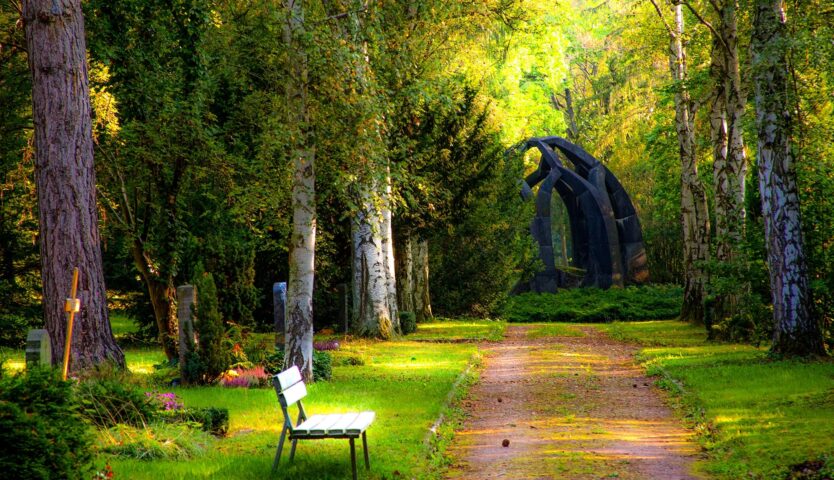What Happens if I Don’t have a Will in Alberta?
Posted by on Dec 9, 2021 in Blog, Wills & Estate
Drafting a legal will can seem like a simple inconvenience of a daunting ordeal – but it is absolutely essential if you want to have a say in who inherits your property, sentimental valuables, and even unpleasant things like your debts.
If left undone, there are regulations in place that ensure some very minor protection to certain relations.
While estate law covers some people such as legal spouses and children, family lines are blurrier than ever these days – contact or visit Heritage Law today to make sure your preferred beneficiaries have a secure future.
How Does a Will Work?
Before we look into what happens if you don’t have a will in Alberta, let’s first look at how wills work.
A will is a legal document that outlines what happens to your property after your death.
In your will, you can stipulate:
- An executor or personal representative who will represent your estate and carry out your wishes.
- Beneficiaries who receive money or other property from your estate.
- Guardians who will care for children who are minors.
Wills are important not only for specifying your wishes but also to relieve stress from your family and loved ones – especially during their time of grief.
Without one, things can get complicated and those who you may want to receive something from your estate may end up with nothing.
What Happens If I Die Without a Will?
If you die without a will, you are considered to have died “intestate”, meaning that you have passed away without a valid will for some or all of your estate.
When this happens, there are two major issues. One, there is no one appointed to represent your estate. Two, there is no formal record of your wishes.
There are two laws in Alberta that address these problems:
- The Estate Administration Act
- The Wills and Success Act
The Estate Administration Act determines who can apply to the court to become the administrator of your estate. Without permission from the court, no one can legally deal with your estate.
Alberta’s Wills and Succession Act stipulates who can inherit your estate after an administrator is appointed. This act looks at a list of people that receive priority to apply for the chance to handle your estate.
If a suitable person or surrogate cannot be found, the Office of the Public Trustee may step into the role. On the surface, this may sound like an easy way out but the consequences may not be as minor as you think.
Default Beneficiaries for Intestate Estates
If you die without a will, your estate may not be handled the way you want. Simply telling someone isn’t enough – you need to have your wishes in writing.
Otherwise, Alberta law will determine who inherits your estate.
When it comes to dying intestate, here is the hierarchy of beneficiaries depending on your situation:
Married/Common-Law With No Children
The deceased was married or in a common-law (adult interdependent) relationship and did not have any descendants (children). In this case, the estate would go to the deceased’s spouse/partner.
However, if both a spouse and interdependent partner exist (the deceased was only separated from their spouse and not divorced), the partner and spouse will split the estate.
Married/Common-Law With Children
The deceased was married or in a common-law relationship and has children with that partner. The estate would go to the deceased’s partner/spouse.
Married/Common-Law With Children (Not With Partner)
The deceased was married or in a common-law relationship and has children with another individual. The deceased’s partner/spouse inherits a part of the estate (the greater of $150,000 or 50% of the estate) and the children receive the remainder (divided equally).
No Spouse/Partner With Children
The deceased has children but no partner/spouse – the estate is divided equally among the children.
No Spouse/Partner and No Children
The deceased has no spouse/partner and no children. In this case, the law lists individuals who can be beneficiaries, in priority:
- Surviving parents
- Siblings
- Nieces/nephews
- Grandparents
- Great-grandparents
If there is more than one individual at any of these levels, the estate is divided equally.
No Spouse/Partner and No Blood Relatives
The deceased has no spouse/partner or blood relatives.
In these situations, Alberta’s Unclaimed Personal Property and Vested Property Act would come into play and the Government of Alberta would receive any part of the estate that isn’t claimed by a valid beneficiary within 2 years.
The government keeps the money for 10 years and if it is not claimed, the government becomes the owner of the property.
Additional Provisions
There are some provisions to prevent estranged spouses/partners from inheriting the estate if the circumstances meet certain requirements.
However, from a legal perspective, your legally married spouse is still entitled to your estate even if you are estranged and don’t intend on leaving them anything.
The Complications of Having No Will in Alberta
Despite avoiding the hassle of creating a will, the consequences are not straightforward and result in having your wishes unmet.
It would be unfortunate to have none of the parameters met or a next-of-kin not found. Your estate would then, as mentioned, pass to the Provincial Treasurer where it will be kept aside for 10 years before passing permanently to the Crown of Alberta.
Have Your Will Prepared
Although there is some protection for those who die without a will, this security is not fail-safe as there are many modern definitions of family and loved ones.
In order to ensure that your wishes are met and that your estate doesn’t slip through the cracks, our team at Heritage Law can help you prepare your will.
We are dedicated to helping you distribute your estate according to your wishes and make provisions for your dependents. Contact us today to get started!





